6 memoirs to put you in a Palestinian’s shoes

The Times’ newsletter head recommends six Palestinian memoirs, plus book awards by the numbers, Hollywood exposés and more in the Book Club Newsletter
- Share via
Good morning, and welcome to the L.A. Times Book Club newsletter.
I’m Boris Kachka, the books editor at the Los Angeles Times. I’m thinking about how important it is right now for people to be able to imagine the lives of others. Fortunately, there is a centuries-old technology for that.
Someone else who’s been thinking about this for a long time is Karim Doumar, the Times’ head of newsletters. This week, I asked if he would write about a particular reading passion of his — Palestinian memoirs. Here are his six favorites. (Please note: The Times may earn a commission through links to Bookshop.org, whose fees support independent bookstores.)
…
You’re reading Book Club
An exclusive look at what we’re reading, book club events and our latest author interviews.
You may occasionally receive promotional content from the Los Angeles Times.
Over the last month, in response to Hamas’ brutal Oct. 7 attacks, Israel has trapped 2.2 million Palestinians in Gaza in an impossible situation: Almost no food, water, gas or medical supplies can enter the strip. Nonstop aerial bombardment has destroyed entire neighborhoods and killed thousands of children; Israeli evacuation orders have forced hundreds of thousands into tent cities or overcrowded apartments far from home.
My grandmother too was forced from her home. In 1948, upon the establishment of the state of Israel, she left her city of birth, Jaffa. That year, Israeli operations uprooted more than 700,000 Palestinians.
For as long as I can remember, I have been trying to make sense of the life she and so many Palestinians have faced over 75 years of occupation and exile. I have conducted long interviews with her and her six siblings, unearthed her diary from that time and dug through old photographs and property records.
I have also read numerous memoirs that detail life in Palestine before, during and after the establishment of Israel; the expulsion known as the Nakba; and the wars and colonist expansions that followed.
A small sampling of those books provides not just an education on Palestinian struggles but a master class in narrative, language and the memoir genre at its best.
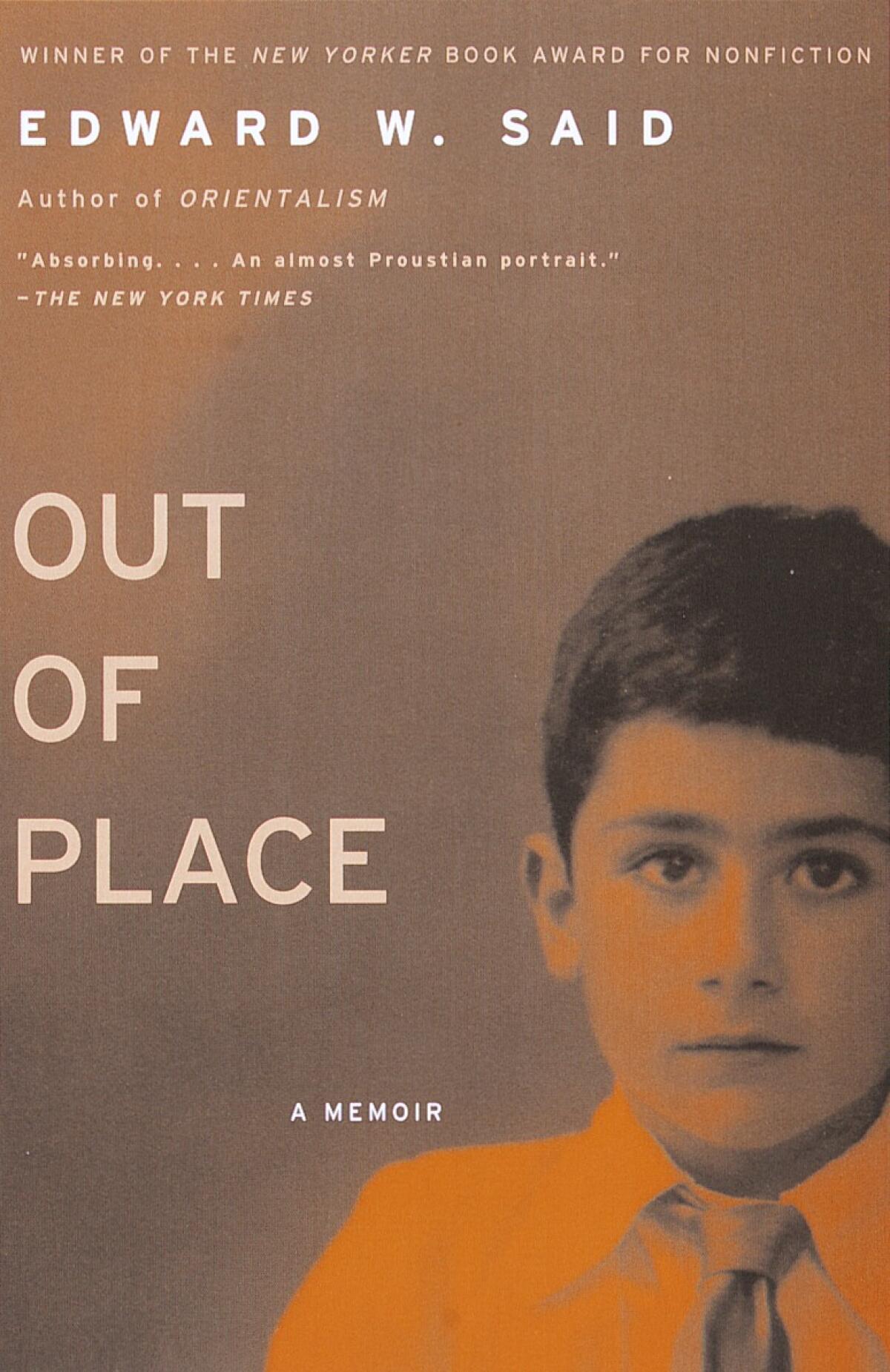
Out of Place
By Edward W. Said
In sharp and lyrical terms, one of the foremost anticolonialist scholars of the 20th century describes how his upbringing as a Palestinian Christian in Egypt, Lebanon and historic Palestine sowed the seeds of his intellectual work.
Sharon and My Mother-in-Law: The Ramallah Diaries
By Suad Amiry
Here is one you can laugh with. Amiry’s gossipy memoir, based on her own letters and diary entries from the 1980s onward, paints a down-to-earth portrait of her efforts to carve out a Palestinian life in Ramallah under military occupation. (Amiry’s novel “Mother of Strangers” is also a favorite of mine.)
Return: A Palestinian Memoir
By Ghada Karmi
The author-activist’s first memoir, “In Search of Fatima,” details her exile from Jerusalem in 1948. In “Return,” she recounts her arrival in 2005 as a consultant to the Palestinian Authority hoping to help build a future and state for Palestinians — and comes to the searing conclusion that “there’s no room for us or our memories here. And it won’t be reversed.”
Embers and Ashes: Memoirs of an Arab Intellectual
By Hisham Sharabi
Sharabi is known for his writings on Arab nationalist and pan-Arab movements. In his 1973 memoir, a raw examination of his own wealthy upbringing in Jaffa, he grapples with the privilege that allowed him to avoid refugee camps after 1948.
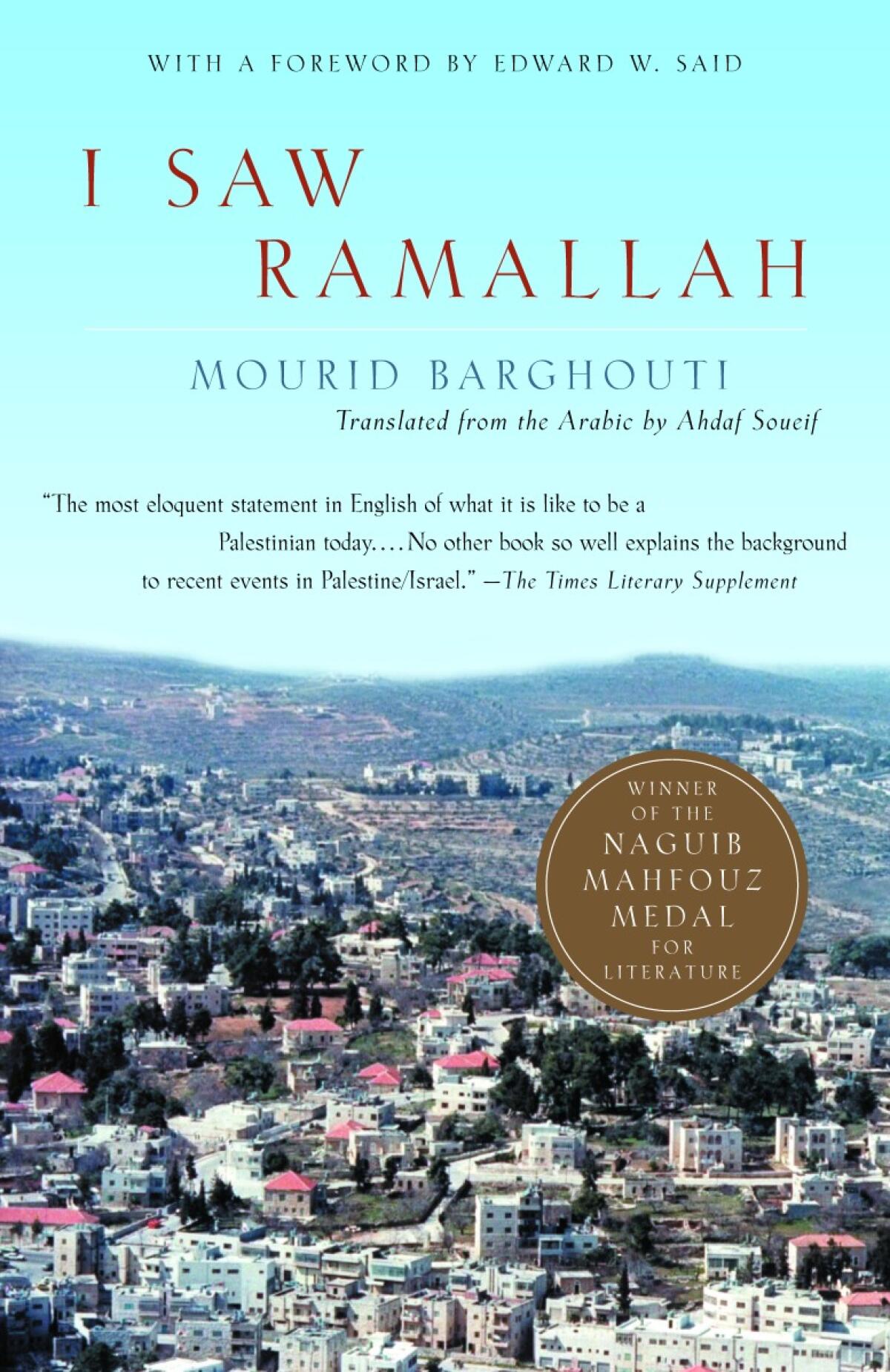
I Saw Ramallah
By Mourid Barghouti
Barghouti returned to his city of birth in the late 1990s after 30 years of forced exile. In this deeply emotional tale, he learns to find a sense of home in a city he no longer recognizes.
A Mountainous Journey: A Poet’s Autobiography
By Fadwa Tuqan
Disjointed and ephemeral, Tuqan’s memoir describes grief and pain in poetic and monumental terms. The author takes you from a repressed childhood in pre-Nakba Nablus to a political awakening that led her to become one of the preeminent poets of the Palestinian resistance.
— Karim Doumar
Next Book Club
There’s still time to sign up for our coming virtual discussion of the L.A. Times Book Club. On Nov. 14 two pioneers of AI, both advocates for its judicious and human-centered deployment, will speak with Times audio head Jazmín Aguilera.
Fei-Fei Lee, author of “The Worlds I See,” was profiled recently by Times contributor Martin Wolk. Joy Buolamwini’s new book, “Unmasking AI,” was the subject of a column last week by Times technology columnist Brian Merchant. Merchant, also the author of a recent book, “Blood in the Machine,” — will join them both at the Book Club discussion.
Catch them on Tuesday at 6 p.m. (Pacific) The talk will be livestreamed on YouTube, Facebook and X, formerly Twitter. Sign up on Eventbrite for direct links and signed books.
The week in books
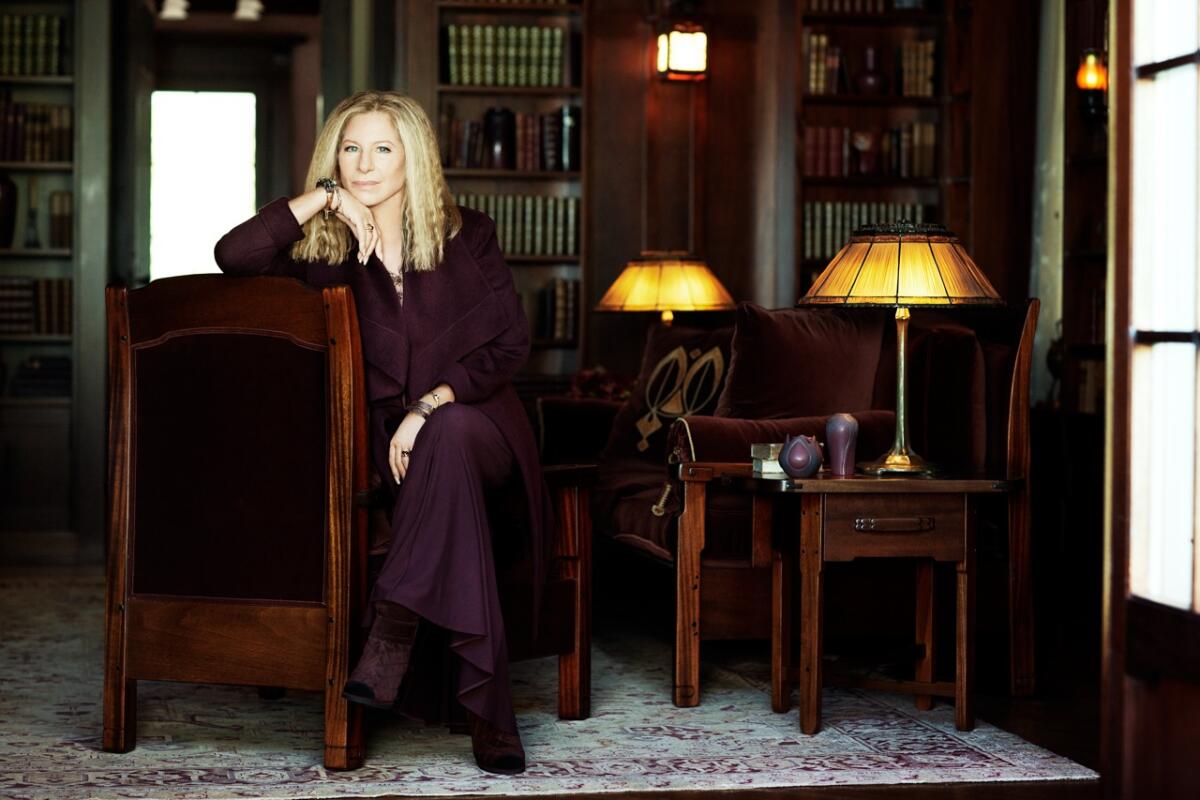
Celebrity Memoir Fall closes out with a big one (almost 1,000 pages): Barbra Streisand’s life-spanning, tea-spilling memoir “My Name Is Barbra.” I have but one quibble with New York Times writer Wesley Morris’ ebullient profile of the legend: He wrote that a book this long and thoughtful didn’t “inspire the ‘five takeaways’ treatment that juicy new memoirs by Britney Spears and Jada Pinkett Smith have.” We beg to differ. L.A. Times contributor Ilana Kaplan does a fabulous job of distilling all the dish.
And now for some industry goss. One genre coming out from under the celebrity-memoir shadow is the Hollywood Industry Big Take. Last week Peter Biskind published “Pandora’s Box: How Guts, Guile, and Greed Upended TV”; Times contributor Chris Vognar regrets to inform you it doesn’t have the punch of Biskind’s classics, though it’s still a lot of fun. And out next Tuesday is a more measured take from veteran film critic David Thomson. Mark Athitakis finds a lot to admire in the thesis of Thomson’s new book, “The Fatal Alliance: A Century of War on Film.” As Thomson writes: “I doubt there is any such thing as an antiwar film. In the dark, whatever the official motive or the orders, we go to war for excitement.”
Romantasy’s big midnight moment. If you haven’t yet heard of Rebecca Yarros, your days in the dark are numbered. BookTok’s favorite writer of “romantasy” (that’s romance-fantasy) scored a giant bestseller with “Fourth Wing” in April, and Tuesday’s release of its followup, “Iron Flame,” occasioned midnight parties unlike anything since Harry Potter’s heyday. Times staff writer Jen Yamato camped out at the Ripped Bodice in Culver City to report on a celebration for the ages.
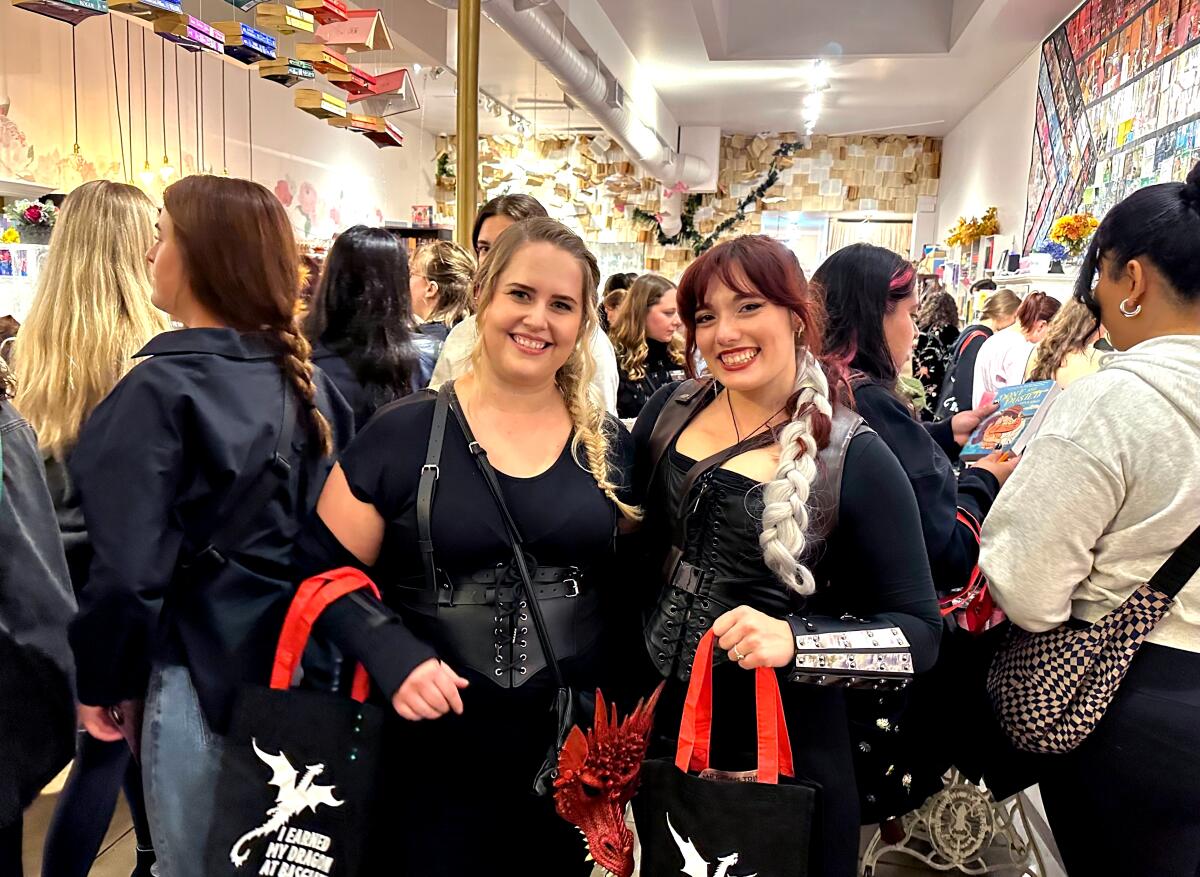
The big guns are out. Two literary stars, Alice McDermott and Michael Cunningham, also had big releases this week. Times contributor Bethanne Patrick talks to McDermott about her inside-out Vietnam War novel, “Absolution,” while critic Hillary Kelly takes on Cunningham’s Virginia Woolf-infused COVID-era-ish chronicle “Day.”
Korean American novelists reimagining Korea. The only thing authors Ed Park and E.J. Koh truly have in common is that they are fixated on how the past never leaves us. Contributor Ilana Masad notes in her Times review of Koh’s “The Liberators” the way events back home are ever-present for its broken family of immigrants. Park’s “Same Bed Different Dreams” is a wilder thing, as contributor Jonathan Russell Clark writes: “It’s the connections between the disparate parts that make [the book] succeed so powerfully yet enigmatically.”
Un-erasing queer stories. Times audiovisual fellow Jireh Deng talks to Curtis Chin about a new memoir focused on his family’s legendary Chinese restaurant in Detroit. And Times reporter Jeremy Childs sits down with author and UCLA professor Justin Torres to figure out how he turned a 1940s study on homosexuality into his beguiling second novel, “Blackouts.”
Awards season notes
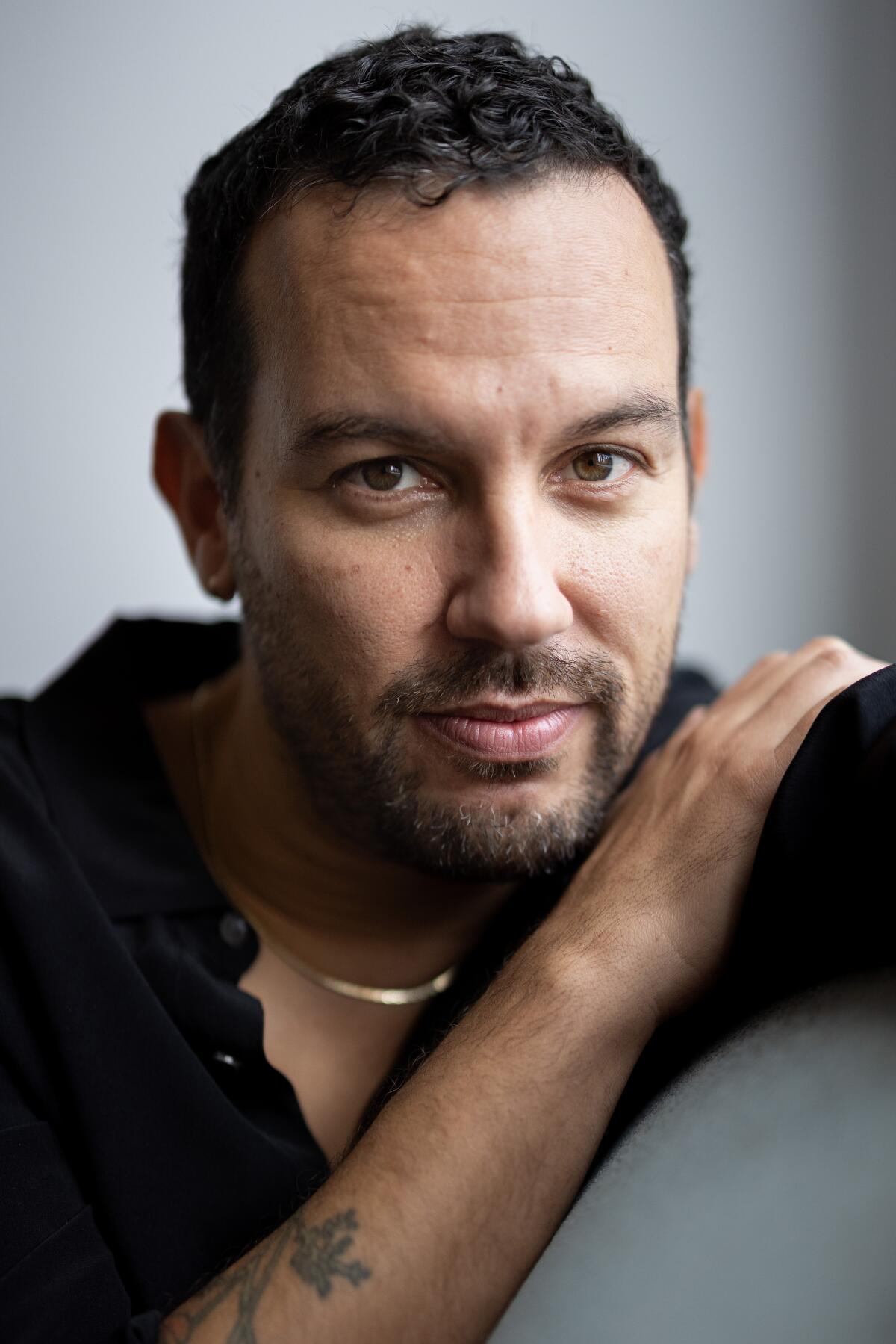
Torres happens to be among the five finalists for the fiction prize at the National Book Awards, which will be announced at a ceremony in New York on Wednesday. (Our full list of the finalists is here.)
In the lead-up to that ceremony, online magazine Public Books is out with a fascinating piece by Alexander Manshel and Melanie Walsh, “What 35 Years of Data Can Tell Us About Who Will Win the National Book Award.” Walsh and Manshel don’t exactly predict a winner, but their deep-dive tells us plenty about the opaque process of picking book awards.
Just 25 people, they report, make up a quarter of all prize jury positions; five judges have represented more than a fifth of jury positions for the Pulitzer Prize. The single most prolific judge, weighing in on more than 75 prizes, is author Joy Williams.
So far, so insular. Even more interesting, as they dive into the NBAs, is the way the increasing diversity of its jury has affected the identities of its winners. It turns out that having one judge of color out of five has no impact; two will nearly double the number of finalists of color; and three will predict three. This year, for the first time, only one fiction judge is white.
So what does this actually tell us in the aggregate? Well, for one, it bolsters the idea that one person in a room cannot change the culture — but genuine, sustained inclusion might.
And don’t forget the Booker. In another reminder that Britain doesn’t celebrate Thanksgiving, the single winner of the U.K.’s Booker Prize will be announced on Nov. 26. So bone up on the shortlist, make yourself a leftover turkey sandwich and tune in for a Sunday lunch and livestream.
Bookstore Faves
Every couple of weeks, we’ll ask an L.A. bookseller what they’re selling and what they’re loving. This time: Zibby Owens, who wears many hats but also owns Santa Monica-based Zibby’s Bookshop.
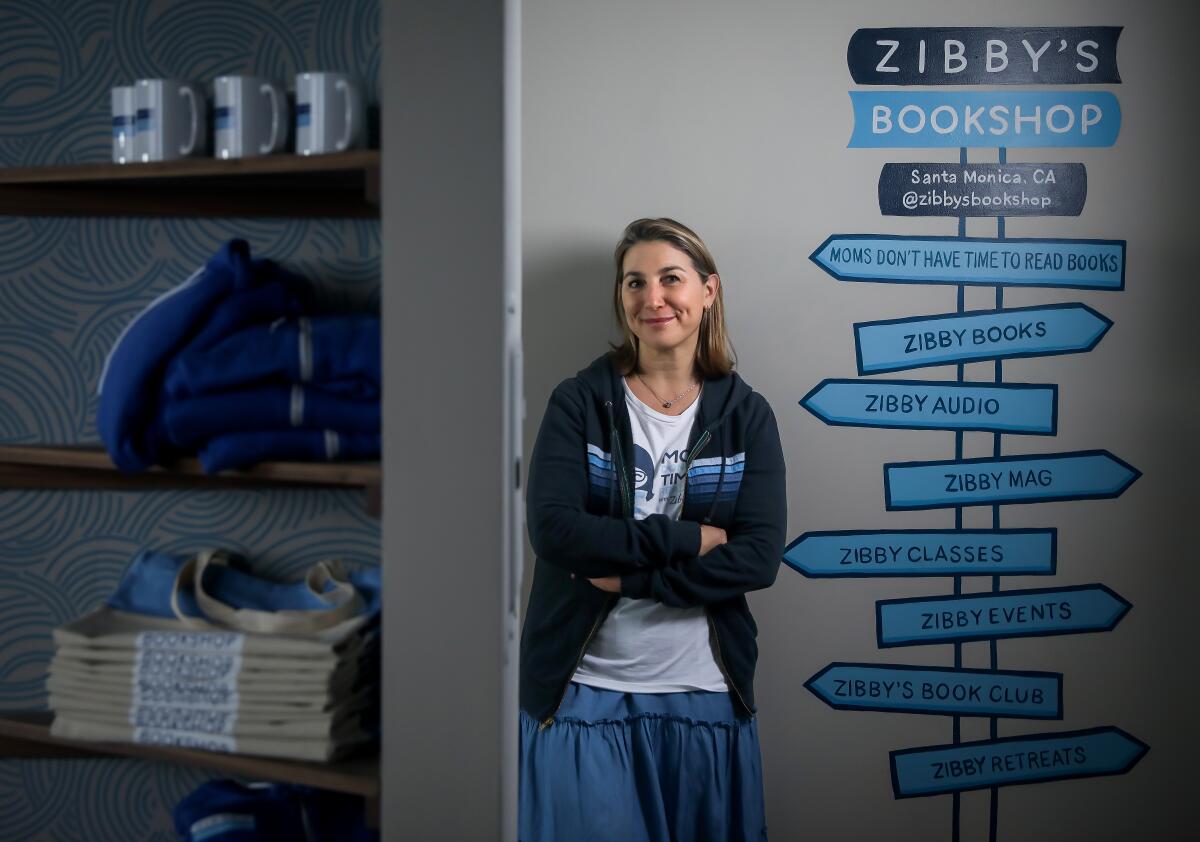
What’s flying off your shelves?
Last week we sold out of the Britney Spears memoir [“The Woman in Me”] in what felt like two seconds. We also keep selling “Tomorrow, and Tomorrow, and Tomorrow,” by Gabrielle Zevin, who was just at our store for an author event, and “Lessons in Chemistry” by Bonnie Garmus. And our inventory of Matthew Perry books went to zero — apparently the publishers need more time to fill the huge influx of orders. Such a tragic loss for our community.
What are your customers asking for?
Lately, we’ve had a lot of teen girls come in looking for something wonderful to read. I’ve been sitting on the ground pulling out books from our YA shelves, many based on recommendations from my niece. I really enjoy seeing the younger set so into books! Our grownup customers are looking for “something to take their minds off the news.” We point some of them to our “rom-coms abroad” shelf, which was inspired by a customer, or “books that make you laugh.”
What are you recommending and why?
I’ve been recommending some powerful new memoirs, like “Hell if We Don’t Change Our Ways” by Brittany Means, “The Many Lives of Mama Love” by Lara Love Hardin and Jonathan Conyers’ “I Wasn’t Supposed to Be Here.” I also curated a new front table all about love and heartbreak — like “How to Stay Married” by Harrison Scott Key, “Heartburn” by Nora Ephron and Gina Frangello’s “Blow Your House Down.” If you’re looking for love, trying to sustain a long marriage or rebounding from something, we have novels and memoirs for you!
What are you looking forward to that isn’t out yet?
Anna Quindlen’s new novel, “About Annie.” Kiley Reid’s “Come and Get It.” “The Last Love Note” by Emma Grey. “The Fury” by Alex Michaelides. “Expiration Dates” by Rebecca Serle. “The Paris Novel” by Ruth Reichl. “The Women” by Kristin Hannah. And, can I plug my own book? “Blank” by Zibby Owens. Aren’t I subtle?
Sign up for our Book Club newsletter
Get the latest news, events and more from the Los Angeles Times Book Club, and help us get L.A. reading and talking.
You may occasionally receive promotional content from the Los Angeles Times.




